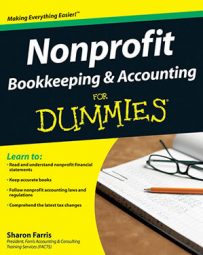Running a nonprofit requires that you annually prepare and submit paperwork to your employees, the Board of Directors, the Social Security Administration, and the IRS. Each year, you should evaluate your nonprofit’s progress, go over your strategic plan, and celebrate the year’s successes. This list represents tasks you should complete yearly:
Submit Form 990, Annual Information Report, to the IRS. This form is where you report all financial activities to the IRS. It reveals your financial strengths and weaknesses, sources of income, and how you’re spending your funds. This information helps the government determine whether you’re engaging in activities that could cause you to jeopardize your tax-exempt status.
Submit annual payroll reports to the Social Security Administration, IRS, and your employees. Form 941 is due no later than January 31. W-2s, W-3s, and 1099s must be handled properly.
Contact a CPA to audit your financial statements. Having audited records is like getting a professional second opinion about the validity of your financial health. It adds credibility to your record-keeping and accounting practices.
Celebrate your success and hard work with your staff and board members by having an annual office party. Reward everyone for a job well done.
Organize your budget task force for the next year. Single out the analytical minds or penny-pinchers on your staff and board. These folks will make up your budget task force, which assesses all budget costs and does a benefit analysis of each line item.
Organize a proposal development team for the next year. Find three people who are organized, enjoy reading technical stuff, and are willing to write. Then organize them into your proposal development team to research, develop, and submit grant applications and contracts for your organization.
Prepare for your annual board meeting by re-evaluating your organization’s goals. Cross out goals you’ve met and develop new goals for the upcoming year.
Declutter your office files and prepare for the next year. Getting rid of the clutter frees your mind and saves time. It’s important that you know where things are and can put your hands on them when needed.

